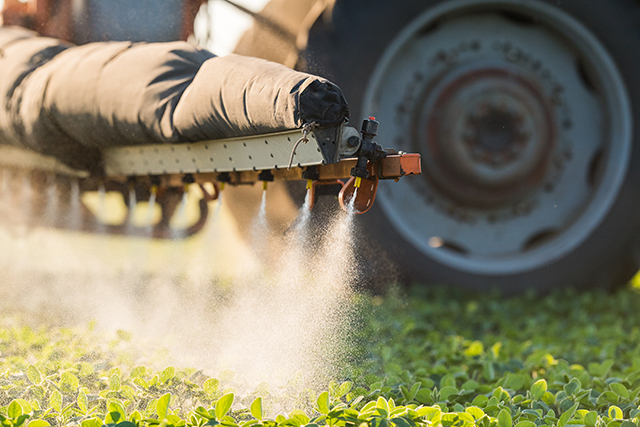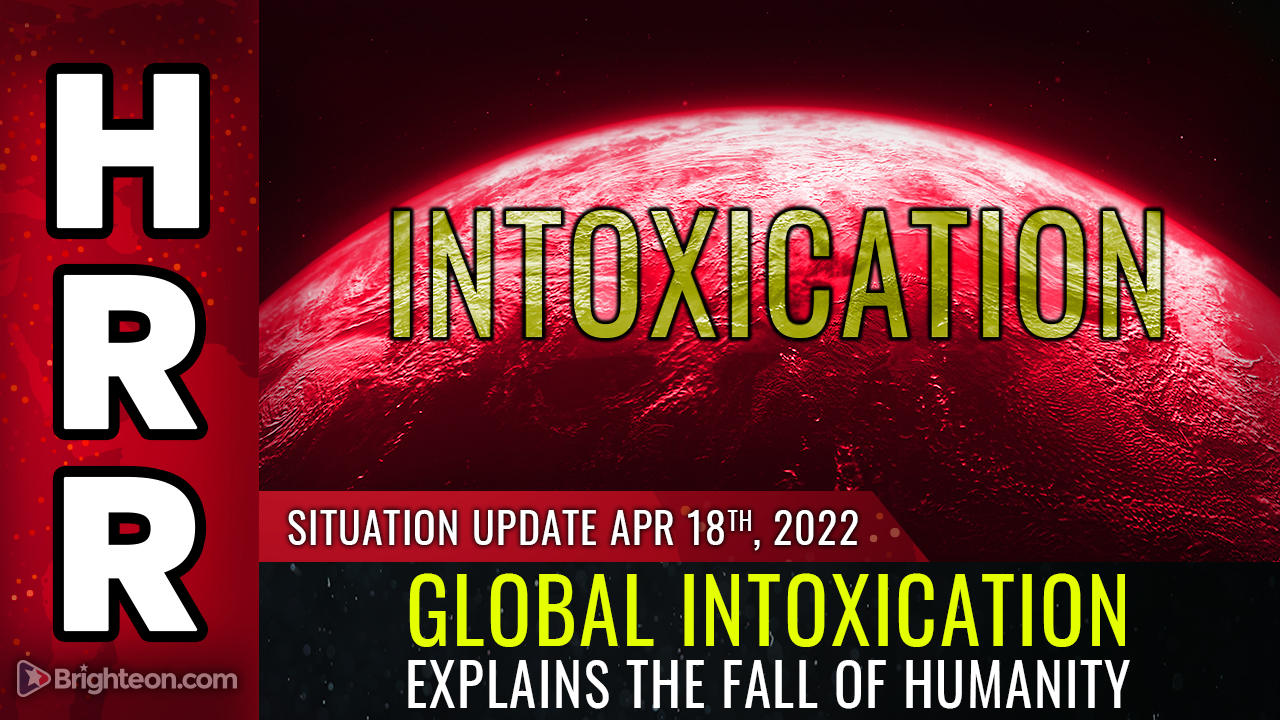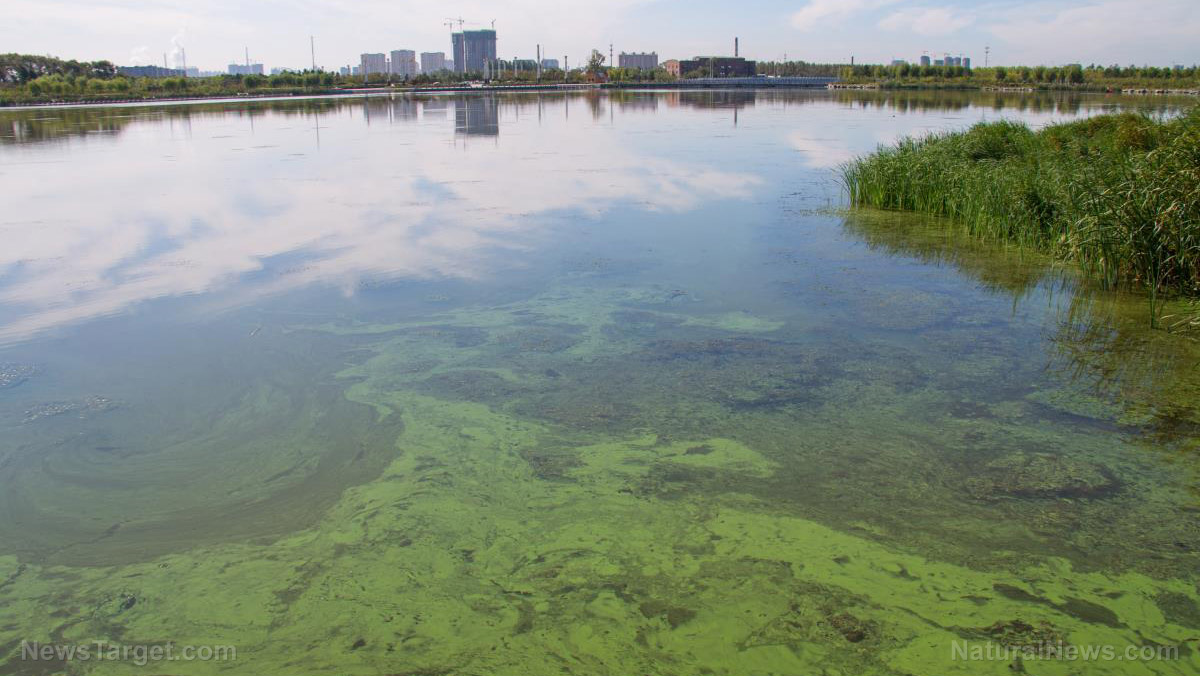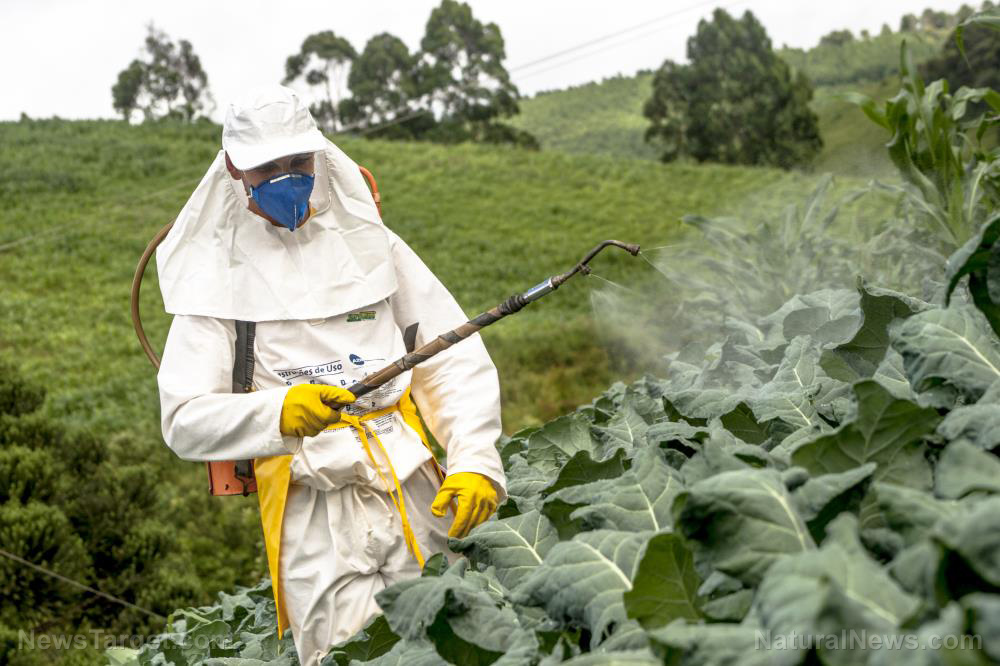Uncovering the truth about pesticides in food
08/06/2020 / By Cassie B.

Every year, six billion pounds of pesticides are used around the world. The effects of all this pesticide use are felt in every aspect of our lives because these chemicals are incredibly pervasive. Even if you eat organic – and you definitely should – it is still hard to avoid pesticide exposure entirely.
That’s unfortunate because a huge body of evidence illustrates the link between pesticides in food and long-term negative health effects on humans. Some of the most commonly used pesticides in food – such as glyphosate, dicamba, chlorpyrifos, atrazine, paraquat, neonicotinoids, 2,4-D and 1,3-D – have been linked to serious health problems. Here is a look at some of the biggest health impacts of pesticides, as outlined by Food Revolution Network.
1. Pesticides can cause some types of cancer and raise your risk of other types of cancer.
It is probably not a coincidence that cancer is rising along with the use of pesticides. Glyphosate, the active ingredient in the popular herbicide Roundup, has been the subject of numerous lawsuits related to non-Hodgkin lymphoma, and its maker, Monsanto, and new owner Bayer, have shelled out billions of dollars to settle cancer lawsuits. Scientists have also shown the carcinogenic effects of pesticides like creosote, sulfamate and organochlorines. Many others contain arsenic, a known human carcinogen. Meanwhile, the pesticides lindane, DDT and chlordane promote tumor growth.
2. They can disrupt your hormones permanently.
Exposure to pesticides can interfere with normal endocrine system functioning, which can have a negative impact on reproductive and sexual function. It can also raise your risk of infertility and lead to low birth weight, certain childhood cancers, and fetal death.
3. They can cause severe respiratory issues.
People who use pesticides in their job on a regular basis have a greater risk of breathing problems such as asthma, chronic bronchitis and impaired lung function, according to a 2013 review in the International Journal of Environmental Research and Public Health.
4. Infants who are exposed have a higher risk of developing autism.
A study involving nearly 3,000 people with autism spectrum disorders found the risk of autism to be higher among children whose mothers lived within a 1.25-mile radius of where pesticides were used during pregnancy. Mothers who live close to fields that are treated with pesticides also have a greater chance of having premature babies and children with impaired cognitive function and neurodevelopmental disorders.
5. Pesticides impact your brain health.
Pesticides are neurotoxins, which means they are toxic to your nervous system. Long-term exposure can raise your risk of Parkinson’s disease significantly, with one study showing that exposure to some pesticides caused a 250 percent higher risk of developing the disease. They’ve also been linked to cognitive decline and other brain disorders.
6. They can lead to severe birth defects.
A study that looked at half a million birth records of people born in the San Joaquin Valley in California, along with pesticide use in the area, found that significant exposure to pesticides during pregnancy raised the risk of birth defects by up to nine percent.
Pesticides also hurt the environment
Of course, it’s not just your body you need to worry about when it comes to pesticides. They can also have a significant impact on the environment. First, they are known to kill pollinators like honey bees, which are essential for helping the world’s food grow.
They get into the water supply through leaching, run-off, erosion and other channels, contaminating groundwater. They also destroy the quality of soil. As you might expect, this means the food grown in the soil has a reduced nutritional value. It also damages the creatures that rely on soil for their ecosystem, such as frogs, lizards, snails, birds, insects, earthworms and snakes.
How can you minimize your risk?
Buying organic produce should be your first course of action, but please don’t stop there. You also need to avoid non-organic meat and dairy as animal products often have pesticide residues from the animals’ feed and environmental exposure.
A home water filter can address pesticide contamination in drinking water, while companion planting is a good natural pest control approach for home gardening.
Unfortunately, there is a lot of money at stake for the Big Ag firms that make these pesticides, and their substantial finances allow them significant power and influence over regulators and lawmakers. In other words, you have to be proactive when it comes to protecting yourself and your family from pesticide exposure because your government isn’t going to do it for you!
Sources for this article include:
Submit a correction >>
Tagged Under:
Dicamba, food science, glyphosate, grocery, harvest, herbicides, organic produce, pesticide dangers, toxins
This article may contain statements that reflect the opinion of the author
RECENT NEWS & ARTICLES
Chemicals.News is a fact-based public education website published by Chemicals News Features, LLC.
All content copyright © 2018 by Chemicals News Features, LLC.
Contact Us with Tips or Corrections
All trademarks, registered trademarks and servicemarks mentioned on this site are the property of their respective owners.





















